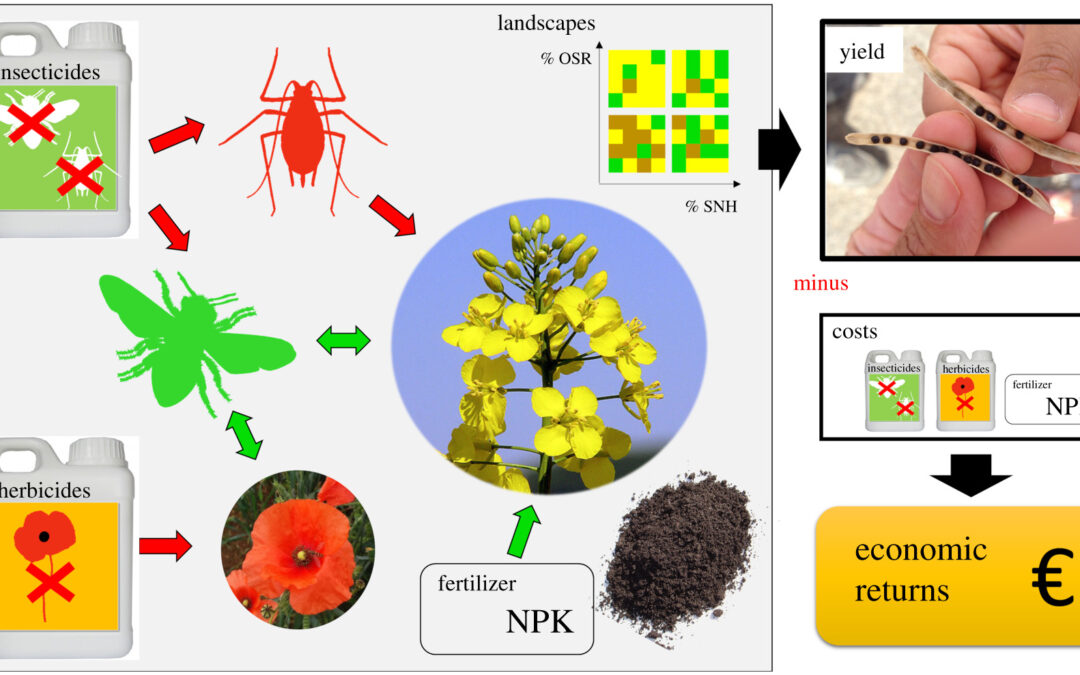Nature-based agriculture that reduces dependency on chemical inputs requires using ecological principles for sustainable agro-ecosystems, aiming to balance ecology, economics and social justice. There is growing evidence that pollinator-dependent crops with high insect, particularly bee, pollination service can give higher yields. However, the interacting effects between insect pollination and agricultural inputs on crop yields and farm economics remain to be established to reconcile food production with biodiversity conservation. We quantified individual and combined effects of pesticides, insect pollination and soil quality on oilseed rape (Brassica napus L.) yield and gross margin, using a total of 294 farmers’ fields surveyed between 2013 and 2016. We show that yield and gross margins are greater (15–40%) in fields with higher pollinator abundance than in fields with reduced pollinator abundance. This effect is, however, strongly reduced by pesticide use. Greater yields may be achieved by either increasing agrochemicals or increasing bee abundance, but crop economic returns were only increased by the latter, because pesticides did not increase yields while their costs reduced gross margins…

